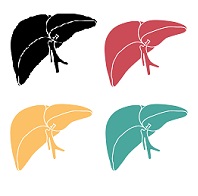 A study in women coinfected with hepatitis C and HIV found that use of marijuana was not associated with progression to advanced liver fibrosis.
A study in women coinfected with hepatitis C and HIV found that use of marijuana was not associated with progression to advanced liver fibrosis.
University researchers studied long-term effects of tetrahydrocannabinol (THC) from marijuana on fibrosis progression in women enrolled in the Women’s Interagency HIV Study. Results were published recently in the Oxford Journal of Clinical Infectious Diseases.
The hepatitis C virus (HCV) is a blood-borne disease that, left unchecked, can lead to fibrosis, cirrhosis, liver cancer, or the need for a liver transplant. The authors note that marijuana use has been associated with progression of liver fibrosis in retrospective analyses of patients with chronic hepatitis C and that other studies on the impact of THC use and liver fibrosis progression have reported conflicting results.
“Currently, marijuana has been legalized for medicinal and/or recreational use in 23 US states, as well as the District of Columbia, and its use in HIV/HCV-coinfected patients is common,” the authors stated in the article. “Given that it is becoming more widely available and more regularly consumed, it is critical to assess its clinical effects, including any negative impact of THC use on liver fibrosis progression.”